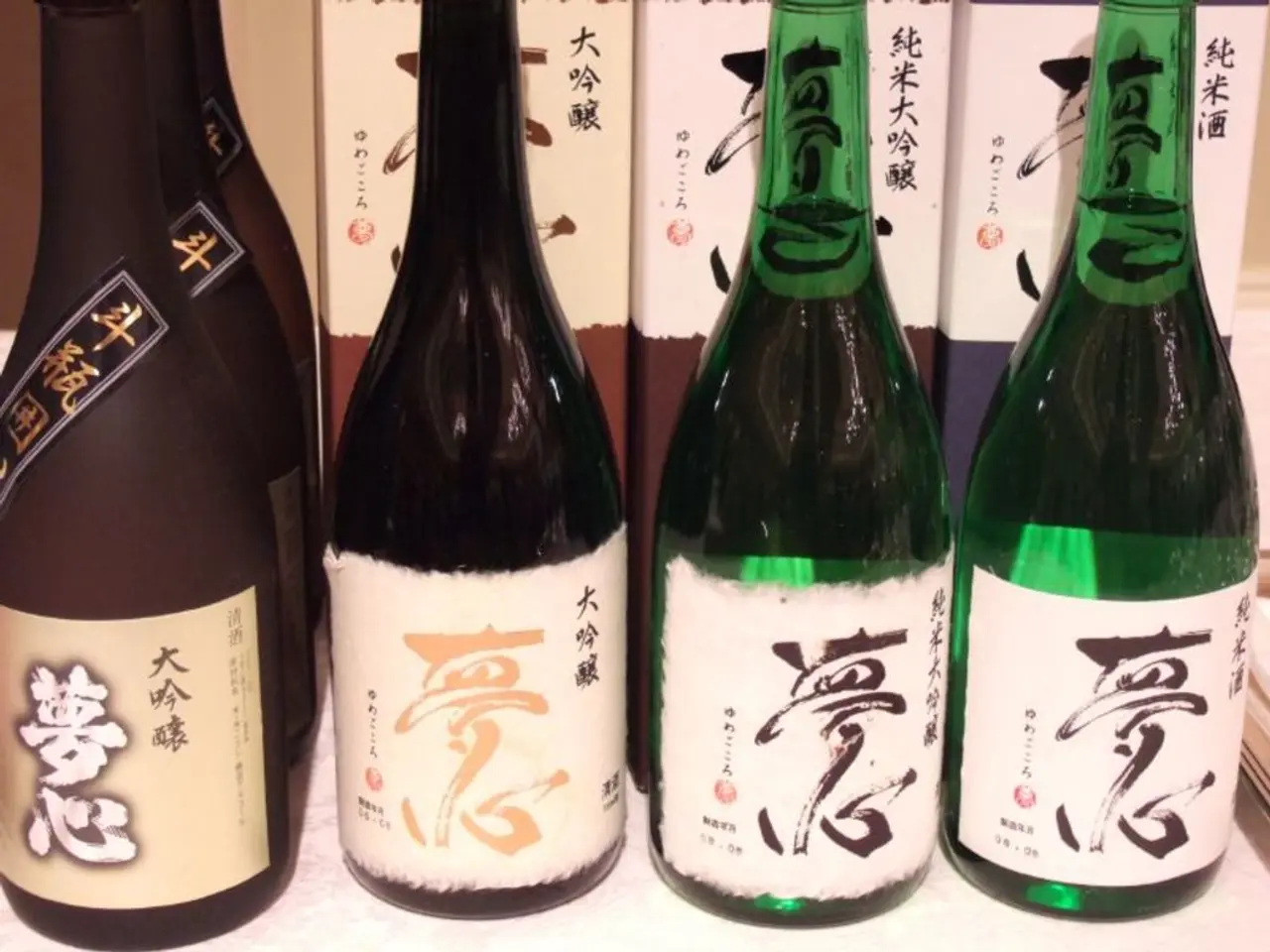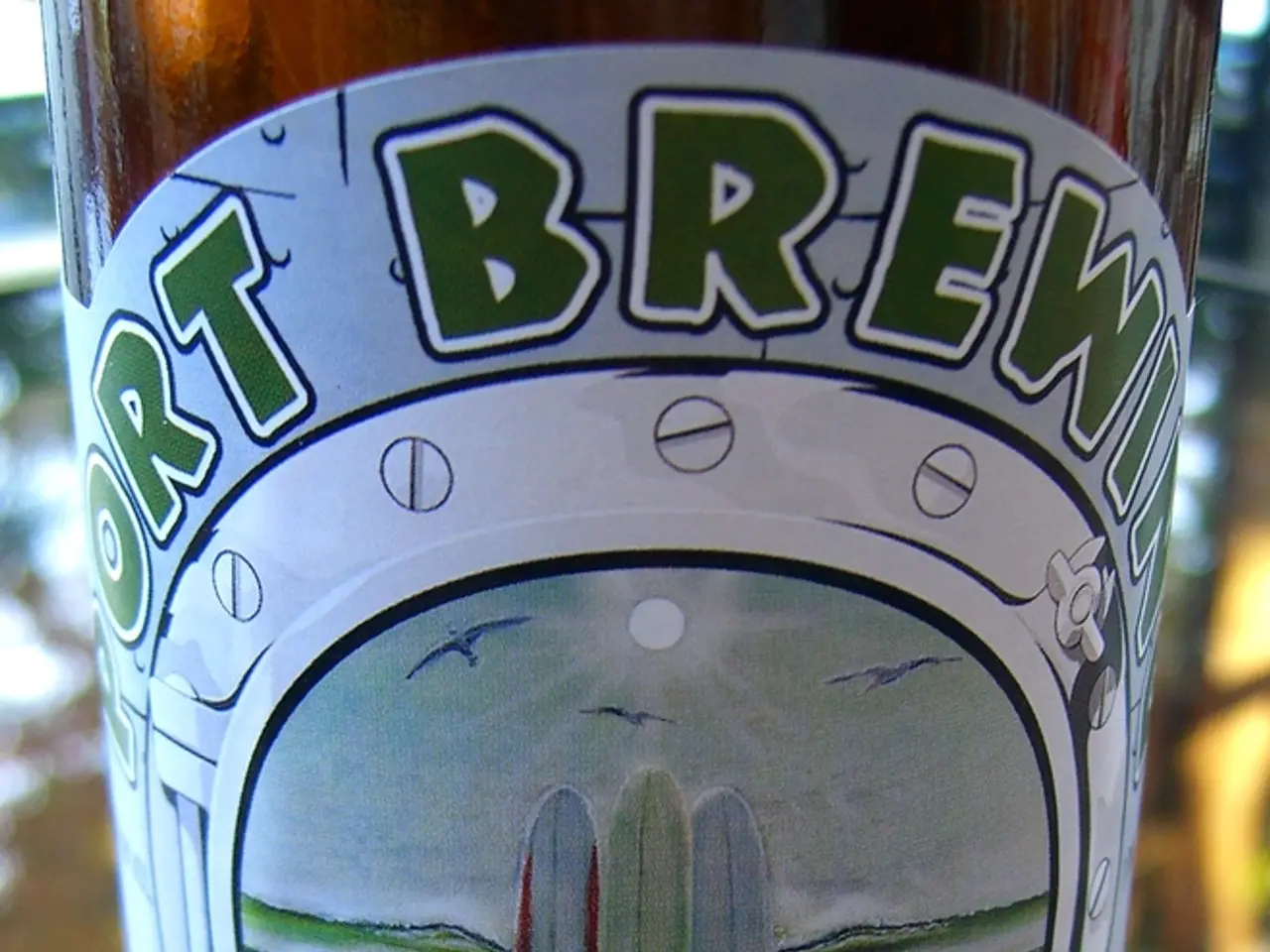Winemakers in the U.S. face overwhelming doubt due to potential penalties - Winegrowers in the U.S. experience "overwhelming vulnerability and uncertainty" due to imposed penalties
In the heart of the Mosel region, winemakers are facing an uncertain future due to ongoing trade negotiations between the U.S. and the European Union (EU). The current U.S. tariff situation on German (and generally EU) wines involves a baseline 10% tariff on all EU goods, including wine products, with no clear exemption for wines at this time.
The trade talks, which have a deadline of August 1 for a deal to be finalized before additional tariffs come into effect, may continue to uphold this baseline 10% tariff on EU goods, with some exemptions potentially negotiated. However, there is significant concern from the European wine sector, including Germany, that wines might be excluded from any exemption lists in the deal. This could potentially lead to an increase in tariffs to between 17-20%, a prospect that has alarmed the wine industry.
The European wine industry association CEEV has voiced concern that excluding wine from the sensitive goods list would worsen the crisis for wineries and grape growers. Lara Haag from the VDP winery Schloss Lieser stated that further tariffs would significantly impair sales in a market that is already fiercely contested. Winemaker Florian Lauer, who exports a significant portion of his wine to the U.S., has a cellar full of wine intended for the U.S., but the importer has put transport on hold due to the uncertainty.
The tariffs restrict the diversity and availability of German premium wines for American importers, restaurateurs, and retailers. The Mosel region is particularly affected by U.S. tariffs on wine, with almost half of all German wines exported to the U.S. coming from the Mosel. Selbach, one of the operations affected, exports a significant portion of its wine to the U.S., in addition to around 40 other operations.
The Three-Tier System in the U.S., a legally prescribed distribution model for alcoholic beverages, ensures that many benefit from the price increase of wine on its way to the customer. In the case of wine, more than 75% of the value creation is with the Americans. However, if tariffs of 25% were imposed, Lauer states that his business would suffer significantly, as the margin would be gone. Ernst Loosen, another winemaker, reported that a 25% tariff imposed by Trump in his first term had significant effects on the sale of wines in the U.S., causing prices for consumers to increase by 50%.
The wine industry plays a significant role in negotiations between the EU and Trump, as there is a strong lobby in the U.S. against tariffs on wines from Europe. Despite the uncertainty, Selbach's export business is currently continuing, with new orders expected next week. The EU Commission is negotiating with Washington in a trade dispute, and the outcome is still uncertain.
Sources: [1] https://www.bloomberg.com/news/articles/2021-07-07/eu-us-talks-on-trade-deal-to-resume-with-deadline-on-august-1 [2] https://www.ceev.eu/press-releases/ceev-alarm-over-exclusion-of-wine-from-sensitive-goods-list-in-eu-us-trade-talks/ [4] https://www.reuters.com/world/us/us-tariffs-on-eu-wines-could-rise-to-20-ceev-says-2021-07-08/
- The European wine sector, including the Mosel region, is deeply concerned that wine might be excluded from any exemption lists in the ongoing EU-US trade negotiations, potentially leading to an increase in tariffs from 10% to 17-20%.
- Wine industry associations, such as the CEEV, are voicing concern that the exclusion of wine from the sensitive goods list could worsen the crisis for wineries and grape growers, adding to the existing challenges in a market that is fiercely contested.
- The Three-Tier System in the U.S. ensures that many benefit from the price increase of wine on its way to the customer, with more than 75% of the value creation occurring in the U.S. However, if tariffs of 25% were imposed, winemakers could suffer significant losses, as the margin would be gone.
- The wine industry is playing a significant role in negotiations between the EU and the US, with a strong lobby in the U.S. against tariffs on wines from Europe. The outcome of the trade dispute between the EU Commission and Washington remains uncertain, affecting the future of wineries and grape growers.




